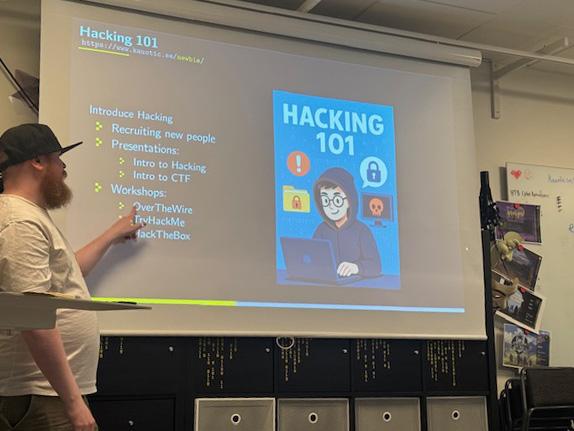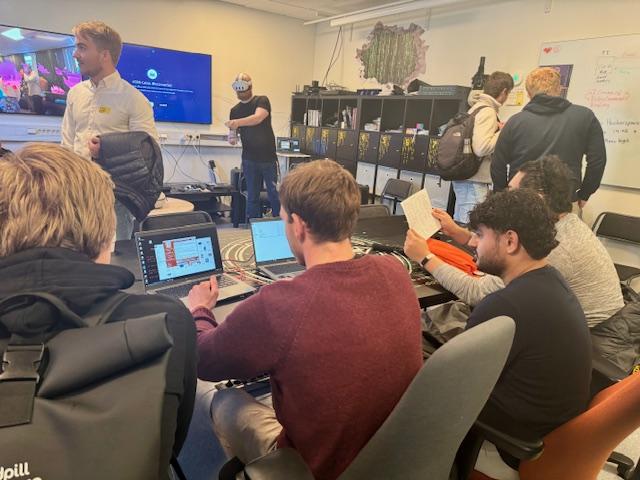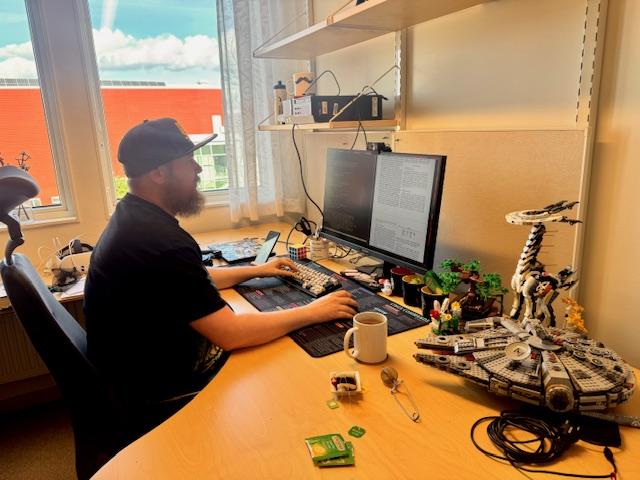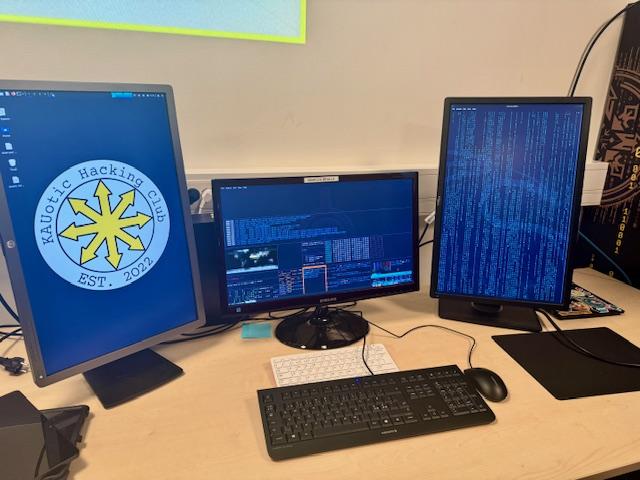Hackerspace strengthens the student environment in computer science
2025-11-27Since last year, the subject of computer science has had its own Hackerspace – a specially equipped room that has quickly become a natural meeting place for students interested in programming, cybersecurity, and technology. The space is also home to KAUotic Hacking Club, the university’s own community for ethical hacking.
The club was started to fill a void, as many computer science students lacked a natural gathering place where they could deepen their interest in cybersecurity and hacking outside of regular coursework. Today, KAUotic arranges everything from workshops and lectures to hacker evenings, and it has quickly become an appreciated part of student life in computer science.
ETHICAL HACKING IN FOCUS
When the word “hacking” is mentioned, many may think of illegal intrusions and digital crime, but KAUotic wants to nuance that image, says Jonathan Magnusson, the club’s founder:
“The work we do is ethical hacking. We compete in Capture The Flag (CTF), a type of cybersecurity competition where participants try to find text strings, so called ‘flags’, that are secretly hidden in deliberately vulnerable programs or websites. The systems in which we find vulnerabilities are set up with this purpose in mind, and we never target systems unless we have permission to investigate them. Sometimes the competitions are organized by, for example, the Swedish Security Service or the Swedish Civil Contingencies Agency (MSB) and we’ve placed very well in several such competitions competing against teams from KTH and other universities,” he says.
KAUotic Hacking Club welcomes all levels, even beginners.
“Anyone with an interest can join. We communicate via Discord and have a website,” says Jonathan Magnusson.
A MEETING PLACE FOR STUDENTS
The Hackerspace room serves as a social hub for computer science students but is open to everyone. You don’t need to be a member of KAUotic Hacking Club or study computer science to spend time there. Joint seminars, lectures, and other activities are held for anyone wanting to deepen their knowledge and the environment inspires students to take their ideas further than what their courses require.
“Students gain a lot of theoretical and practical knowledge in their courses, but in the Hackerspace they can build on it. In one project, students were to program a car to follow a track. Here, one group took it further and built an entirely remote-controlled model car from scratch,” says Stefan Alfredsson, head of department and senior lecturer in computer science.
For Stefan Alfredsson, Hackerspace is about creating an environment where students dare to try things, experiment and have fun.
“Having such an open environment means freedom with responsibility and after a year it works very well. Events, competitions and open lectures are organized, and almost every time I walk past both students and teachers are sitting there. There’s something about the place that draws people in. I believe that engagement, community, and knowledge grow in an environment where you can explore your own ideas and meet across year groups. The bonds formed here last a long time—perhaps a lifetime,” he concludes.








